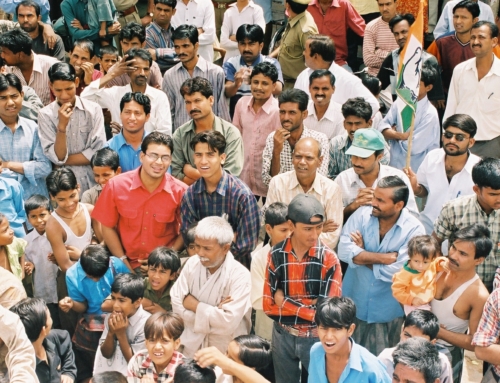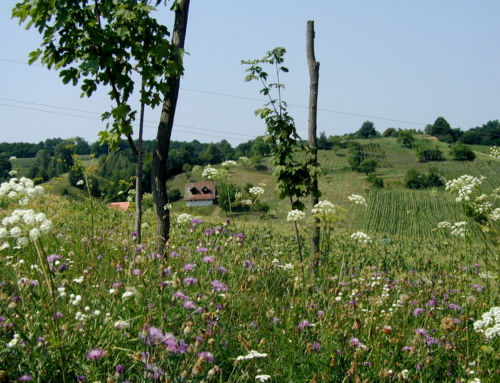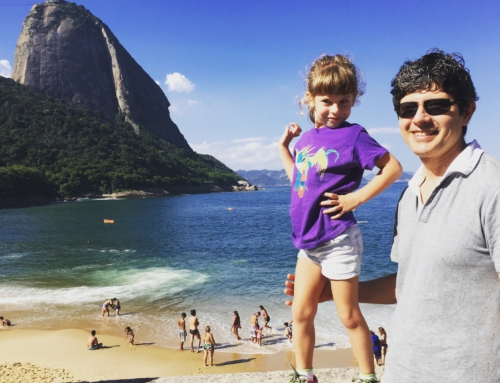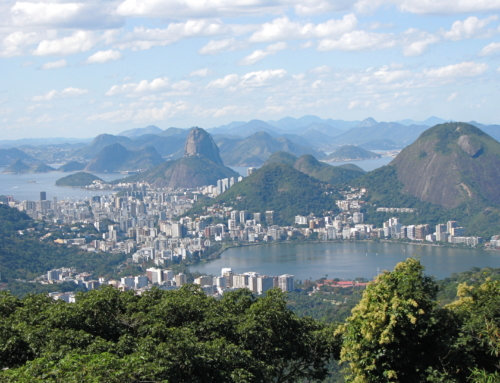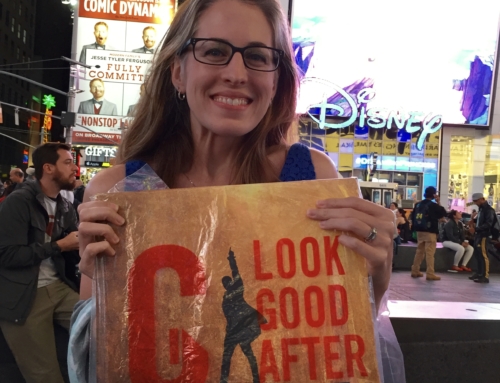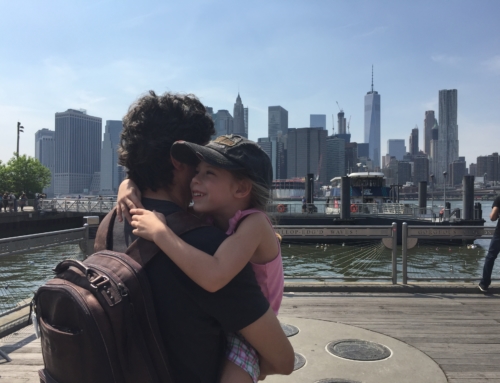This is a flashback to my first published essay! It appeared in 2007 in the now defunct digital magazine Glimpse, a National Geographic Imprint. It’s about the first day of my study abroad program in Rabat, Morocco in Sepetember, 2003. I’m feeling very old now.
A Random Street in Rabat
 It did not take me long after announcing my study abroad plans to realize that “abroad” for most of the people I knew meant Western Europe or Australia. Any other country was not so much abroad as another planet. The first time I mentioned Morocco to family or friends there was usually a momentary pause as people first, tried to place Morocco on a map, and second tried to figure out why I wanted to spend a significant amount of time there. Australia they could understand. It has beaches and people with funny accents. Italy has pasta and Prada. The only thing Morocco has is a city named after a Humphrey Bogart film.
It did not take me long after announcing my study abroad plans to realize that “abroad” for most of the people I knew meant Western Europe or Australia. Any other country was not so much abroad as another planet. The first time I mentioned Morocco to family or friends there was usually a momentary pause as people first, tried to place Morocco on a map, and second tried to figure out why I wanted to spend a significant amount of time there. Australia they could understand. It has beaches and people with funny accents. Italy has pasta and Prada. The only thing Morocco has is a city named after a Humphrey Bogart film.
While many people didn’t know what countries Morocco borders they did know it is Islamic and predominantly Arab. This was cause for concern among friends and family. Being what one of my professors calls a “good liberal” I believed I was above the negative generalizations many of my friends and family made. When my less open-minded family and friends living sheltered lives in Georgia, asked why I would want to study in a country where I was likely to get assaulted simply for being American, I’d give an exasperated sigh and patiently (maybe ever so condescendingly) explain that “all Arabs are not terrorists and they do not spend their afternoons looking for Americans to beat with sticks.” I scolded my friends for being so ethnocentric as to believe Arabs were inherently more violent than Americans. I prided myself on avoiding the negative stereotyping of Arabs and Muslims many of my friends and family engaged in and as an open-minded, good, liberal, university student I arrived in Casablanca with my program group on September 2, 2003.
 On September 3, I found myself all alone, completely lost, standing on a street corner in Rabat. That was the day of the Drop Off–the morning our program directors piled all 22 students on a bus, drove us around Rabat until we had no directional bearings whatsoever, and dropped us off one by one on random street corners throughout the city. Our first full day in Morocco and each of us was left stranded on a different street corner with no maps, no cell phones, and no idea how to even pronounce the street our hotel was on. The only thing we had was an assignment. Get back to the hotel by 1 o’clock. Welcome to Morocco and good luck.
On September 3, I found myself all alone, completely lost, standing on a street corner in Rabat. That was the day of the Drop Off–the morning our program directors piled all 22 students on a bus, drove us around Rabat until we had no directional bearings whatsoever, and dropped us off one by one on random street corners throughout the city. Our first full day in Morocco and each of us was left stranded on a different street corner with no maps, no cell phones, and no idea how to even pronounce the street our hotel was on. The only thing we had was an assignment. Get back to the hotel by 1 o’clock. Welcome to Morocco and good luck.
As the bus pulled away it kicked up a huge cloud of dust, which settled adding to the already thick layer on the cars parked along the curb. Across the street was a clay wall, stretching as far as I could see in both directions. “Where am I?!” Panic is an interesting sensation and watching the bus pull away with the teachers and students I was convinced I would never see again, I got to experience heart-pounding, adrenaline-pumping, rational-thought-inhibiting, panic.
 As I frantically looked around I noticed one opening in the wall flanked by two heavily armed Moroccan soldiers. I had heard stories about corrupt police officers in developing countries, about the actions of local military around the world who were supposed to be protecting refugees in various places, and decided the best direction to start walking would be away from the men with guns, uniform or no uniform. It would be much later before I realized this was my first decision in Morocco based entirely on a stereotype.
As I frantically looked around I noticed one opening in the wall flanked by two heavily armed Moroccan soldiers. I had heard stories about corrupt police officers in developing countries, about the actions of local military around the world who were supposed to be protecting refugees in various places, and decided the best direction to start walking would be away from the men with guns, uniform or no uniform. It would be much later before I realized this was my first decision in Morocco based entirely on a stereotype.
I walked down a few residential streets, which were of course deserted. Where were all those people I had seen out on the streets the day before? Where were the market streets I glimpsed through the bus windows bustling with people and literally humming with energy? I was desperate to find a person, and it appeared I had been dropped off on the only street in Rabat where no one was selling anything. I wanted to find people, and I wanted to find them before the band of angry Islamic fundamentalists rounded the corner and stoned me.
 Yes, that was one of the many thoughts running through my head as I tried to keep myself together. Despite all my boasting about being above the negative stereotyping of Arabs many friends and family engaged in, as I stood on the sidewalk of an unknown street somewhere in Rabat, I was genuinely afraid I was going to be harassed, beaten, or worse by those “fanatical Arabs.” So much for being a good liberal who doesn’t stereotype. I was alone, in a completely foreign country, with no knowledge of the language, or the culture, or where in God’s name my hotel was–and in that panic I embraced the most negative, racist stereotypes that had ever been presented in Western media. I wanted to go back to the time when being liberal meant eating vegan chocolate cake and discussing Said’s definition of orientalism on the quad of my $34,000 a year university in Northwest Washington, DC. While I walked, my mind kept repeating, “What am I doing here? I’m a white girl from Snellville, Georgia USA, where all the teenagers wear ‘what would Jesus do?’ bracelets. Why didn’t I study abroad in London with all of my friends?”
Yes, that was one of the many thoughts running through my head as I tried to keep myself together. Despite all my boasting about being above the negative stereotyping of Arabs many friends and family engaged in, as I stood on the sidewalk of an unknown street somewhere in Rabat, I was genuinely afraid I was going to be harassed, beaten, or worse by those “fanatical Arabs.” So much for being a good liberal who doesn’t stereotype. I was alone, in a completely foreign country, with no knowledge of the language, or the culture, or where in God’s name my hotel was–and in that panic I embraced the most negative, racist stereotypes that had ever been presented in Western media. I wanted to go back to the time when being liberal meant eating vegan chocolate cake and discussing Said’s definition of orientalism on the quad of my $34,000 a year university in Northwest Washington, DC. While I walked, my mind kept repeating, “What am I doing here? I’m a white girl from Snellville, Georgia USA, where all the teenagers wear ‘what would Jesus do?’ bracelets. Why didn’t I study abroad in London with all of my friends?”
After what seemed like forever, but of course in these situations is really only a minute or two, I found a street with stores, cafes and, most importantly, a group of women standing on a corner not far in front of me. I walked up to them and steeled myself for all the anti-American sentiment I was certain would come spewing forth. Then a funny thing happened. When I said the name of the main road near our hotel all the women started smiling and pointing. One woman in what looked like a long brown nightshirt (I later learned it is called a djellabah) and a cream hijab, took my elbow and guided me down the street so I could see where she was pointing. The others followed all smiling and telling me the way.

Visiting the beaches of Rabat with my homestay family! My little brother and sister for four months.
Unfortunately they were telling me in Arabic of which I knew not one word. I did, however, get the general direction, and I started walking that way. As I walked, it occurred to me the women had been nice. They had been helpful. Nobody had given me a mean look or angry gesture. They had read my body language, figured out I was lost, and pointed me in the right direction. I began thinking, “Maybe other people I meet would be nice too? Maybe I’ll get back to the hotel alive?” Things were looking up.
I approached a young couple walking down the street and they stopped and gave me very detailed directions in French smiling the entire time. It took about three sentences from the couple for me to realize that I had seriously overestimated my French skills on my program application, but I understood enough to get turned down the right street. I was getting closer and I had talked to two groups of people who had been more than happy to help me. The panic was slowly being replaced by a sense of confidence and a sneaking suspicion nobody was going to kill me along the way.
Finally, while I was standing on a corner with my facial expressions screaming, “I am totally lost,” a young man came up and asked politely in French if he could help. I explained that I was looking for my hotel and that I didn’t speak French all that well. He smiled and said slowly that he knew where the hotel was, it wasn’t far and he would walk me to it. And that is exactly what he did. I don’t where he had been going or what his afternoon plans had been, but this man took twenty minutes out of his day to walk some random and confused foreigner to the door of her hotel. I was grateful and shocked by how generous this man had been with his time.
 As pleasantly surprising as this man’s generosity had been it was not the biggest surprise of the day. I was struck to the core when I walked into the hotel’s lobby and saw it was filled with students and all the Moroccans who had taken the time to help each of us find our way back. As we breathlessly shared our stories at increasing levels of volume, it became evident that every student made it back to the hotel through the generosity of complete strangers who were willing to take time out of their day to help another person. We had not experienced any kind of anti-American sentiment; in fact most of us had gotten incredibly positive reactions toward Americans. I hadn’t come across a flag or Bush effigy burning in the street. I had been in Morocco one full day and I had already had an exciting and liberating adventure, which introduced to many touchingly generous people and brought me face to face with my own hidden stereotypes.
As pleasantly surprising as this man’s generosity had been it was not the biggest surprise of the day. I was struck to the core when I walked into the hotel’s lobby and saw it was filled with students and all the Moroccans who had taken the time to help each of us find our way back. As we breathlessly shared our stories at increasing levels of volume, it became evident that every student made it back to the hotel through the generosity of complete strangers who were willing to take time out of their day to help another person. We had not experienced any kind of anti-American sentiment; in fact most of us had gotten incredibly positive reactions toward Americans. I hadn’t come across a flag or Bush effigy burning in the street. I had been in Morocco one full day and I had already had an exciting and liberating adventure, which introduced to many touchingly generous people and brought me face to face with my own hidden stereotypes.
When the rush of having successfully followed someone who knew exactly where he was going began to ebb I was forced to face the humbling fact of how quickly, and without any good reason, I had thought the worst of all the people around me. It turned out, after all my pre-departure pontificating I had at some point internalized the same negative stereotypes of Arab Muslims I was consciously trying to avoid. I knew the first step to ridding myself of these stereotypes was admitting I had them in the first place.

The program staff was amazing!!!
Recognizing and then confronting stereotypes is one of the most difficult parts of traveling to another country and it seems unfair that a person should be forced to do this while jet-lagged, sleep-deprived, and trying not to get lost every time she ventures out of her hotel, this last one being especially difficult when the street signs are written in a different alphabet. Unfortunately, travelers have no choice because it usually only takes landing at the airport to realize just how far off your preconceptions were. Failing to identify your own stereotypes and the information that led to their creation will be the cause of hair-pulling frustration and anger at the people for not being exactly the way you had imagined them in your head.  While tenaciously clinging to stereotypes, particularly if they are negative, will also blind a person to the wonderful and fascinating realities and practices of any culture. Recognizing stereotypes for what they are, imagined realities based on limited information, and preparing yourself to leave them behind as you learn and observe the reality from within the culture, are essential in order to make the transition into a new culture.
While tenaciously clinging to stereotypes, particularly if they are negative, will also blind a person to the wonderful and fascinating realities and practices of any culture. Recognizing stereotypes for what they are, imagined realities based on limited information, and preparing yourself to leave them behind as you learn and observe the reality from within the culture, are essential in order to make the transition into a new culture.

This picture has nothing to do with the article except that it was taken during my semester in Morocco. I just wanted to share it.
